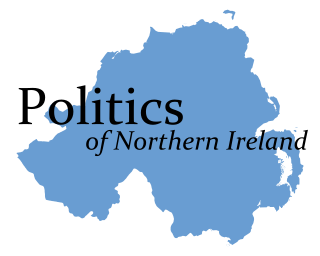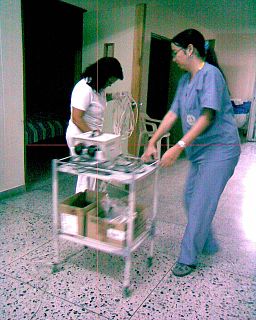
The Government of Sindh is the provincial government of the province of Sindh, Pakistan. Its powers and structure are set out in the provisions of the 1973 Constitution, in which 29 districts come under its authority and jurisdiction. The government includes the cabinet, selected from members the Sindh Assembly, and the non-political civil staff within each department.

The Badin District is a district in the Sindh province of Pakistan. The total area of the district is 6,726 square kilometers. It had a population of 1,136,636, in 1998, of which 16.42% were urban, according to the Pakistani census taken at the time. Total population of District Badin was recorded as 1,804,516 in the census of 2017. Headquartered at the city of Badin, the district is situated between 24°-5` to 25°-25` north latitude and 68 21’ to 69 20’ east longitude and is bounded on the north by the Tando Allahyar District, Northwest by the Hyderabad District, on the east by Mirpurkhas and Tharparkar districts, on the south by the Kutch district of India, and on the west by Sujawal and Tando Muhammad Khan District.
Bhurgri is a Baloch tribe which lives in various provinces of Pakistan.

The Department of Health is a devolved Northern Irish government department in the Northern Ireland Executive. The minister with overall responsibility for the department is the Minister of Health.
For health issues in Iran see Health in Iran.

The healthcare delivery system of Pakistan is complex because it includes healthcare subsystems by federal governments and provincial governments competing with formal and informal private sector healthcare systems. Healthcare is delivered mainly through vertically managed disease-specific mechanisms. The different institutions that are responsible for this include: provincial and district health departments, parastatal organizations, social security institutions, non-governmental organizations (NGOs) and private sector. The country's health sector is also marked by urban-rural disparities in healthcare delivery and an imbalance in the health workforce, with insufficient health managers, nurses, paramedics and skilled birth attendants in the peripheral areas. Pakistan's gross national income per capita in 2013 was $5,041 and the total expenditure on health per capita in 2014 was $129, constituting 2.6% of the country's GDP.

Food safety in China is a growing concern relating to agriculture. China's principal crops are rice, corn, wheat, soybeans, and cotton in addition to apples and other fruits and vegetables. China's principal livestock products include pork, beef, dairy, and eggs. The Chinese government oversees agricultural production as well as the manufacture of food packaging, containers, chemical additives, drug production, and business regulation. In recent years, the Chinese government attempted to consolidate food safety regulation with the creation of the State Food and Drug Administration of China in 2003; officials have also been under increasing public and international pressure to solve food safety problems. Chinese Vice Premier Li Keqiang said, "Food is essential, and safety should be a top priority. Food safety is closely related to people's lives and health and economic development and social harmony," at a State Council meeting in Beijing.

Health care in Colombia refers to the prevention, treatment, and management of illness and the preservation of mental and physical well being through the services offered by the medical, nursing, and allied health professions in the Republic of Colombia.
The Ministry of National Health Services, Regulation and Coordination is a cabinet level ministry of the Government of Pakistan with responsibility for national public health.
The California Health and Human Services Agency (CHHS) is the state agency tasked with administration and oversight of "state and federal programs for health care, social services, public assistance and rehabilitation" in the U.S. state of California. The agency is headed by the Secretary of the California Health and Human Services Agency, with headquarters in Sacramento. Many of the laws in the California Health and Safety Codes are enforced by it.

The Ministry of Health and Medical Education (MOHME) has executive responsibility for health and medical education within the Iranian government. The MOHME comprises five departments headed by deputy ministers:
- Research and Technology,
- Education,
- Logistics,
- Food and Drug and
- Health.

Healthcare in Chile is provided by the government via Fondo Nacional de Salud (FONASA) and by private insurers via Instituciones de Salud Previsional (ISAPREs).

Tharparkar also known as Thar, is a district in Sindh province in Pakistan headquartered at Mithi. The district is the largest in Sindh, and has the largest Hindu population in Pakistan. It has the lowest Human Development Index rating of all the districts in Sindh.

Jinnah Sindh Medical University, formerly known as Sindh Medical College, is a medical university in Karachi, Sindh, Pakistan. It gained university status in June 2012.
Health care in Karachi, Sindh, Pakistan is administered by both private and public health care providers. Health care is the diagnosis, treatment, and prevention of disease, illness, injury, and other physical and mental impairments in human beings. Health care is delivered by practitioners in allied health, dentistry, midwifery (obstetrics), medicine, nursing, optometry, pharmacy, psychology and other health professions. It refers to the work done in providing primary care, secondary care, and tertiary care, as well as in public health.
The Punjab Health Department is a government agency of Punjab, Pakistan that delivers preventive healthcare, as well as curative care health care services from the primary health care level to the tertiary care level.
Department of Health is a department of Government of Balochistan, Pakistan. The department is a standard body for providing public health, medical education, training and employment in the Balochistan.

Ghulam Muhammad Mahar Medical College or GMMMC in short is the sixth public sector Medical college under the Government of Sindh where 100 meritorious students of tagged districts, including Sukkur, Khairpur and Ghotki are getting education every year. It is named after Sindh politician Ghulam Muhammad Khan Mahar.

The COVID-19 pandemic in Pakistan is part of the ongoing pandemic of coronavirus disease 2019 caused by severe acute respiratory syndrome coronavirus 2. The virus was confirmed to have reached Pakistan on 26 February 2020, when two cases were recorded. On 18 March, cases had been registered in all four provinces, the two autonomous territories, and Islamabad Capital Territory, and by 17 June, each district in Pakistan had recorded at least one confirmed case of COVID-19.
This article documents the timeline of the COVID-19 pandemic in Pakistan.











